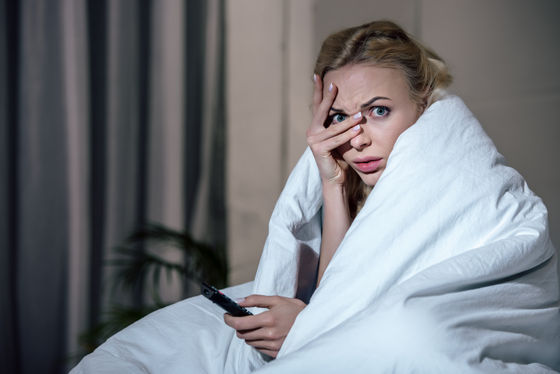Research reveals that 'poor sleep quality' could be a pitfall for conspiracy theories

Many people have had the experience of having trouble falling asleep at night, with their minds wandering and imagining things. It has been found that various factors are related to the tendency to become obsessed with conspiracy theories, such as
Investigating the link between sleep quality and belief in conspiracy theories - Daniel Jolley, Iwan Dinnick, Lauren Burgin, Sophie Ryan, Olivia Morgan-Finn, Samuel Muncer, 2025
https://journals.sagepub.com/doi/10.1177/13591053251320598
How poor sleep could fuel belief in conspiracy theories
https://theconversation.com/how-poor-sleep-could-fuel-belief-in-conspiracy-theories-251669

According to Daniel Jolly and Ivan Dinick, psychology researchers at the University of Nottingham in the UK, sleep problems have been linked to increased anxiety, depression and delusions, all of which are associated with belief in conspiracy theories. Yet sleep has rarely featured in discussions of conspiracy theories.
So, in a study published in the peer-reviewed journal Journal of Health Psychology on March 12, 2025, Jolly and his team conducted two experiments on the relationship between sleep quality and conspiracy beliefs.
In the first study, 540 participants were given sleep quality measurements and then read articles about the 2019
A collection of photos and videos of the massive fire at Notre Dame Cathedral - GIGAZINE

The second study looked at 575 participants and examined psychological factors such as depression, paranoia, and anger to see how they related to sleep quality and belief in conspiracy theories.
The results showed that depression was the strongest link between sleep and conspiracy beliefs, meaning that 'depression due to poor sleep quality was most strongly associated with conspiracy beliefs.' In contrast, paranoia and anger showed less consistent results.
A series of studies have revealed a link between poor sleep quality and conspiracy beliefs, but Jolly and his colleagues believe that 'sleep is just one piece of the puzzle,' since not all sleep-deprived people are into conspiracy theories.

This study did not prove a causal relationship, so it is not yet clear how sleep and conspiracy theories are related. For example, it is possible that there is a common cause between the two factors, such as chronic stress or anxiety causing sleep deprivation and a tendency to conspiracy theories.
Additionally, previous studies have shown that lack of sleep increases anger, depression, and paranoia, which may make people more likely to believe misinformation.
Jolly and his colleagues pointed out that conspiracy theories are not just bizarre delusions; they have become a problem with serious real-world consequences, such as vaccine hesitancy, climate change denial, and violent extremism. 'Our findings suggest that improving sleep quality may reduce conspiracy beliefs. Thus, sleep-focused interventions, such as treating insomnia and public health efforts, may be useful in addressing conspiracy thinking,' they said.
Related Posts:
in Science, Posted by log1l_ks







